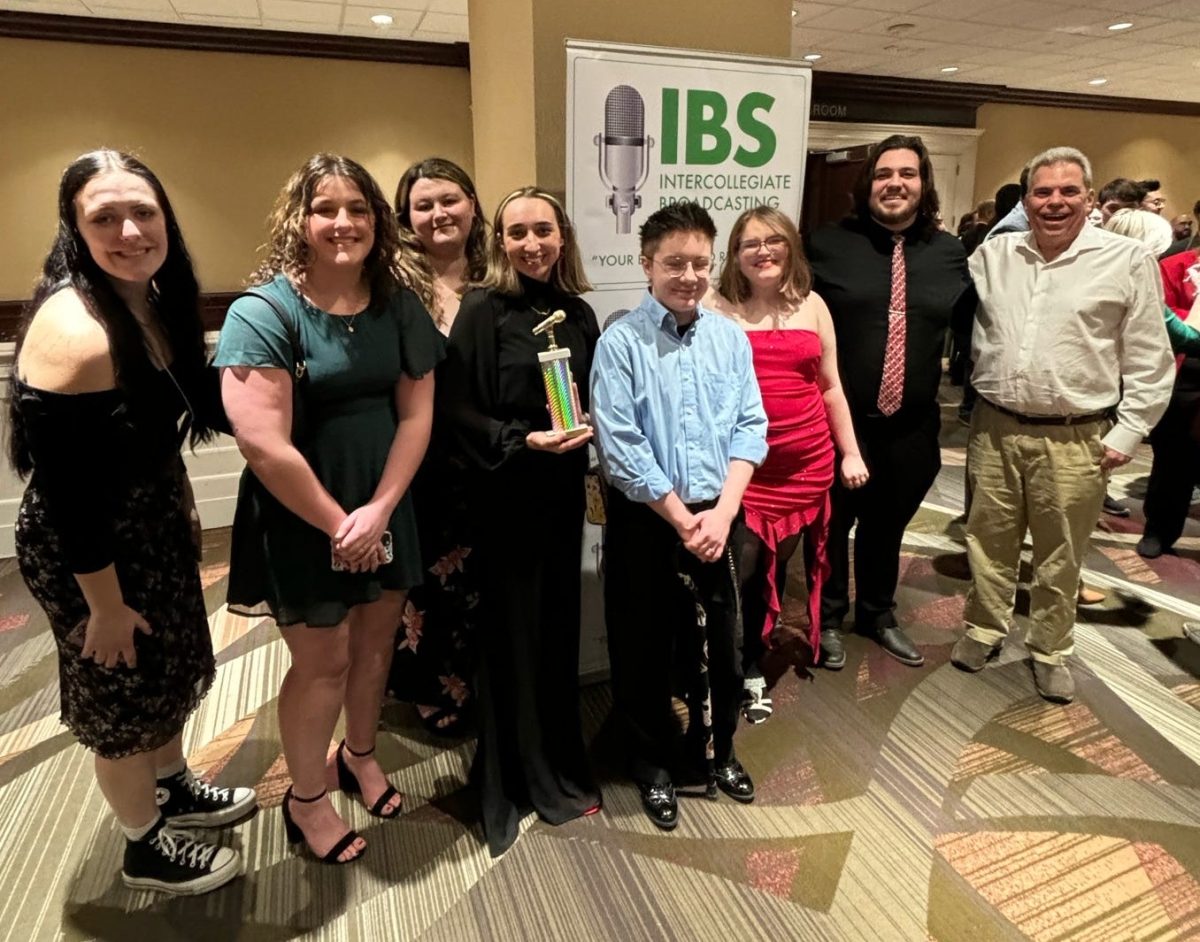Students walking past its large glass windows on A.J.’s Way might think it’s empty, or at least an unused attachment to Gannon University’s Zurn Science Center.
But the Erie Technology Incubator is actually a veritable Silicon Valley of business – hosting 16 fledging companies driven by imagination, creativity and hard work.
Russell Combs, the executive director, said a business incubator gets its name because it’s intended to grow and develop a business, just as an actual incubator may help a baby chick grow into a healthy chicken strutting around in the yard.
He said Gannon has been a “champion” of the incubator since its inception.
Gannon invested in a consultant to do a study intended to learn if starting the technology incubator would be worthwhile. The information produced by this study was taken to then president Antoine Garibaldi, Ph.D., and the board of trustees, who said they could see the benefits of the incubator for Gannon and the Erie community.
The ETI is now a separate corporation from Gannon, though it still receives some funding from the university.
Combs said the ETI is what is called a “traditional, full business incubator,” meaning consultants there take a hands-on approach to growing businesses in the five years they are allotted to work at the incubator.
Combs said teams at the ETI – which consist of Combs, his support staff and an extensive group of business mentors – feel obligated to help businesses successfully graduate into the real world after five years. The intention is that these businesses who have benefited from investments will return those investments by becoming important members of the community.
Combs said the ETI is currently representing 20 companies, 16 that have their home base at the incubator. He said these businesses come from a wide range of technology-related fields such as intelligence analysis, biological medicine, alternative energy and green energy.
The companies at the incubator arrive there after successfully completing an “intake process” to determine whether or not they will be credible and marketable.
The Small Business Development Center, located on the first floor of the Palumbo Academic Center, is one place that conducts this type of research on entrepreneurs’ ideas and then transfers people who have sound business plans to the ETI.
Barbara Ward, a business management consultant at the SBDC, said its purpose is to provide entrepreneurs with education, information and one-on-one consulting on starting, growing and running a business. They serve anyone who calls, comes in or contacts them.
The Erie SBDC is part of a country-wide conglomerate consisting of 750 total centers. Eighteen of these are located in Pennsylvania. All SBDC’s are run out of universities and are funded through federal tax dollars.
Erie’s SBDC helps start-up companies get off the ground and existing businesses improve, Ward said.
When someone comes to the SBDC they are told to take a First Step class. Ward said they generally get about 25 people per month. In these sessions, they learn what traits successful entrepreneurs need to have, how to write a business plan and how to improve their credit. Once the person goes through the first step class, they sign a request for consulting form and then they become a client.
The SBDC consultant becomes part of a client’s team, which Ward said should include an attorney, banker, CPA and a mentor. One of the most important jobs of a consultant is to help the client come up with a viable business plan, as lenders won’t look at the client without it.
Ward said a mentor is especially important, because SBDC consultants are generalists.
“We don’t know about every industry,” she said. “You might need a mentor in massage therapy to help you with a massage therapy business.”
While the ETI works directly, in a day-to-day manner with businesses to see that they are successful, the SBDC works with them in a more overall way, giving them advice when they ask for it.
But the two organizations don’t always strictly divide along those lines. The relationship is dynamic and involves a lot of give and take, Combs said.
The relationship between Gannon and the ETI is just as intricate as that between the SBDC and the ETI, Combs said.
He said students with well thought out business plans are just as welcome as 45-year-old entrepreneurs to get help from the ETI.
But Combs said a unique opportunity the incubator can give to students is an internship. The incubator’s 16 companies provide lots of different situations for interested students. Currently the incubator has no interns, but three have been hired for spring internships for a software design company.
Though Combs said he didn’t know of any open positions at the time of his interview, he encouraged interested students to take initiative because this changes daily.
He said he makes sure internships are beneficial to both the intern and the boss, and that interns aren’t just “stuffing envelopes and dumping garbage.” Interns at exit interviews have consistently praised the program for how in-depth it is, he said.
“Overwhelmingly, the majority of them have said this was way beyond what they thought, but it was a blast,” he said.
Aaron Wolosyzn, a recent Gannon graduate who majored in business management, is one such individual who found his internship valuable and has since been hired at the incubator.
Wolosyzn said at the beginning of his unpaid internship he made an effort to introduce himself to the various businesses and help them where needed. He became very involved with Green Lighting LED, which became a member of the incubator in 2000.
During his internship he helped update products and customer data bases and worked on developing new sales techniques. On the day he took his last final, the president of the company took him to a dinner interview, and he was hired.
Wolosyzn has been working at the three-person company fulltime since Jan. 1 as director of sales.
Wolosyzn attributes his good employment fortunes partially to his work ethic. “I put a lot of time and effort into the projects I was working on with them,” he said.
He also attributes his Gannon education, because he said some classes in business ethics and business management were very relevant.
However, he said he doesn’t believe Gannon is working hard enough to show the opportunities the incubator can provide to student interns. He said he thinks professors sometimes deter students because the internship is unpaid, but he said that shouldn’t deter them.
“Times are tough,” he said. “But I’d rather have the experience. ETI really has a lot to offer and I think Gannon could do a much better job showing that.
“I don’t think there’s enough communication between Gannon and the incubator.”
The SBCD also provides internship opportunities for students. Michael Prechtl, a second year graduate business administration student is currently an intern there, and he said his job consists of helping clients create business plans and helping to run the first step seminars.
Prechtl has found his experience equally valuable to what Wolosyzn described.
“I’ve gained valuable real world experience working with clients, actually, as opposed to just learning the theory throughout the courses in the MBA program.”
Prechtl said he eventually hopes to take this experience to a job working with small businesses, specifically in efforts to help create and grow their business. He believes the internship has greatly aided him in gaining the tools to achieve that dream.
Prechtl also isn’t too bothered by the slow economy’s effect on his industry.
“I think this is the best time to get in the field and help people start businesses,” he said. “The success rate is very low for start up businesses.
“Organizations need someone to help them start up, as opposed to going at it blind and not really knowing what they are doing.”






